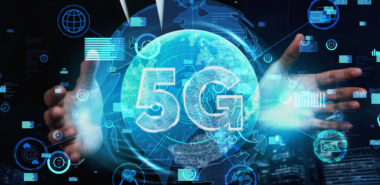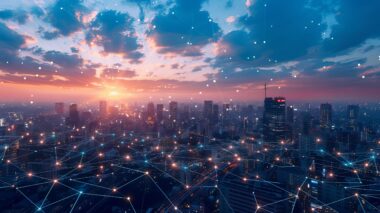Last month, a very long wait came to an end for Blade Runner fans. Since the original (set in 2019) was released in 1982, a cult-following of fans from all over the world has been waiting (and hoping) for a sequel. 35 years later, their patience has been rewarded with a masterpiece; Blade Runner 2049 has been heralded as five-star blockbuster, visually stunning, and a philosophically profound classic.
For those that haven’t seen it yet, here’s the trailer:
2049 raises several questions that encourage us to think carefully about the future in relation to AI. Is there anything we can learn from the way the film deals with human and machine existence?
1. AI’s potential is incredible, and for some unsettling
The potential of artificial intelligence has been well-documented, particularly in the last few years. However, 2049 does highlight AI’s potential in a brilliant and concerning way. It shows us that if perfected, we might be able to create forms of the intelligence that could execute tasks, jobs and assignments more effectively than we humans ever could. Indeed, we’re getting close now when it comes to diagnosing some cancers.
The performance of Ryan Gosling’s K throughout the film shows us incredible skill, reasoning, quick thinking, strength and bravery. If, someday, we become able to create replicants such as this, the possibilities are endless – these forms of intelligence could revolutionize everything, from education, to medicine, to services, to policing, to transport.
In fact, we’re already seeing how machine-learning, in ways a precursor to a fully-realized AI, can enhance mobile marketing strategies and payments right now… and if these forms of AI continue to progress (which is likely), we may even see a Zero UI System (or screen-less) in the future, which would be truly incredible. For more on this fascinating concept, check out Rand Hindi’s Ted Talk.
But the capability of AI in the film is unsettling. The potential of AI is wondrous, of course, but 2049 shows us a myriad of ethical problems and dilemmas relating to the rights and treatment of the film’s AI protagonists (known as replicants). And without providing too many spoilers, it also shows us the possibility of AI thinking completely independently, which is a difficult scenario for many to deal with. This brings us to our second lesson.
2. Distrust of AI is highly likely
Early into the story, we see a widespread distrust of replicants. The humans of 2049 are clearly uncomfortable in the presence of AI, and we’re already seeing some distrust today. A recent survey has found that 85% of Brits believe that AI in marketing should be governed by a key principle from the Blade Runner franchise, now known as the “Blade Runner rule”. This rule dictates that it is illegal for AI applications such as chatbots, social media bots and virtual assistants to conceal their identity and pose as humans. All companies considering the use of AI in these forms should bear this in mind, and ensure transparency, or risk alienating customers.
3. AI could hold the key to building a truly connected world and greater civilizations
If you’ve now watched the trailer above and listened carefully, you’ll remember how the eerie Niander Wallace claims that “every civilization was built off the back of a disposable work force”. A chilling claim, but one with arguably some truth within it. Perhaps an AI-based workforce is the key to building an even greater world? It’s difficult to predict though, and ethical concerns spring to mind immediately. However, there is a point to be made when it comes to AI’s relationship with the IoT.
The IoT is currently producing astounding volumes of data, so much that analysts won’t even come close to processing it all accurately. Simply put, big data is being produced more quickly than we can deal with it. One hope of getting a hold on it, and harnessing its potential is AI. It could be the only way to build an IoT to be proud of, and it’s something we’re working on with our Assurance Hub. This new platform aims to prevent online banking fraud through a detailed analysis of customer behavior and biometric markers.
What did you think of Blade Runner 2049? Do you think there are any parallels with the connected society many are building? Should we be more concerned around the ethics of AI? Let us know, by tweeting to us @Gemalto or leave a comment in the section below.


